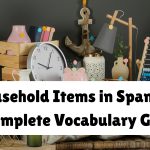The word ‘parcero’ is more than just ‘buddy’ or ‘friend’ in English. In Colombia, it means a deep kind of friendship that involves real trust and closeness. It shows how important relationships are in Colombia and reflects the country’s strong community spirit.
By looking at ‘parcero’, we see how language can grow and change with a culture’s values and norms. Comparing this word to similar ones in different cultures might help us understand how people everywhere connect, but also how they express those connections differently.
What does “parcero” mean?
The term ‘parcero’ is widely used in Colombia and it usually means ‘friend’ or ‘buddy.’ It comes from an older word, ‘aparcero,’ which referred to someone who shared farming land with others. This background shows how important teamwork and close bonds were, and still are, among people there.
Today, calling someone ‘parcero’ is like saying they’re a good friend, part of a tight-knit group.
Colombian Slang words to refer to people
Colombian Spanish is full of slang that people use to show affection. When Colombians talk about friends, they might say ‘parcero’ or ‘parce.’ ‘Güevón’ is another friendly term, but be sure it’s used in a casual, friendly setting.
For young kids, ‘chino’ is commonly used. These words reflect the friendly and close culture in Colombia.
1. Parcero (Parcera for women)
This is the ultimate word for “buddy” or “friend.” It’s used all over Colombia.
📌 Example: “¿Qué más, parcero? Vamos por una pola.” (What’s up, buddy? Let’s grab a beer.)
2. Man
Yes, like in English! But in Colombia, man is a casual way to say “dude.”
📌 Example: “Ese man juega fútbol como un crack.” (That dude plays soccer like a pro.)
3. Mono (Mona for women)
Used for blondes or people with light skin. Even if your hair is light brown, you might hear this.
📌 Example: “Oye, mono, ¿qué vas a hacer esta noche?” (Hey, blondie, what are you doing tonight?)
4. Cucho (Cucha for women)
A way to refer to older people, especially parents.
📌 Example: “Voy pa’ donde mi cucha.” (I’m going to my mom’s place.)
5. Llave
A close friend or best buddy. Similar to “bro.”
📌 Example: “Mi llave, te tengo una buena noticia.” (Bro, I have good news for you.)
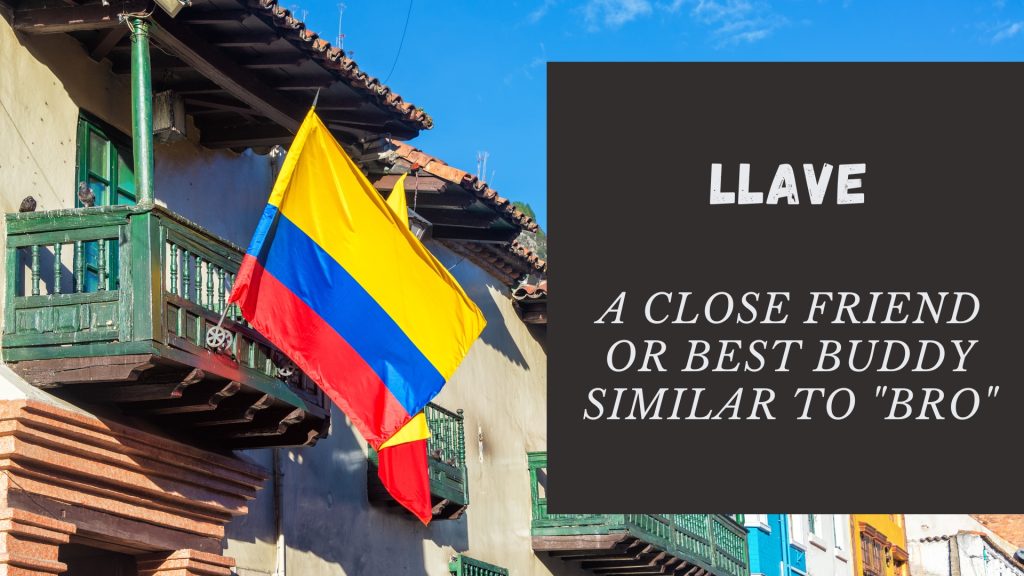
6. Gomelo (Gomela for women)
A rich, spoiled kid who dresses fancy.
📌 Example: “Ese man es un gomelo, solo usa ropa de marca.” (That guy is a rich kid, he only wears brand-name clothes.)
7. Viejo (Vieja for women)
Can mean “old man” or just a casual way to call a friend.
📌 Example: “¿Cómo va todo, viejo?” (How’s everything, man?)
8. Chino (China for women)
In Colombia, chino means “kid” instead of “Chinese.”
📌 Example: “Ese chino tiene mucha energía.” (That kid has so much energy.)
9. Ñero (Ñera for women)
A rough or street-smart person. Can be playful or insulting.
📌 Example: “Ese ñero siempre anda en problemas.” (That street guy is always in trouble.)
10. Paila
A way to refer to someone in trouble.
📌 Example: “Si no estudias, paila en el examen.” (If you don’t study, you’re screwed on the test.)
11. Bacán (Bacana for women)
Someone chill, friendly, and fun to be around.
📌 Example: “Ese man es muy bacán, siempre ayuda a todos.” (That guy is so cool, he always helps everyone.)
12. Marica
A VERY common word among friends. It means “dude” but can also be an insult.
📌 Example: “Marica, casi me caigo en la calle.” (Dude, I almost fell on the street.)
13. Chimba
Can mean “awesome” or “bad,” depending on the tone.
📌 Example: “Qué chimba de concierto.” (What an awesome concert.)
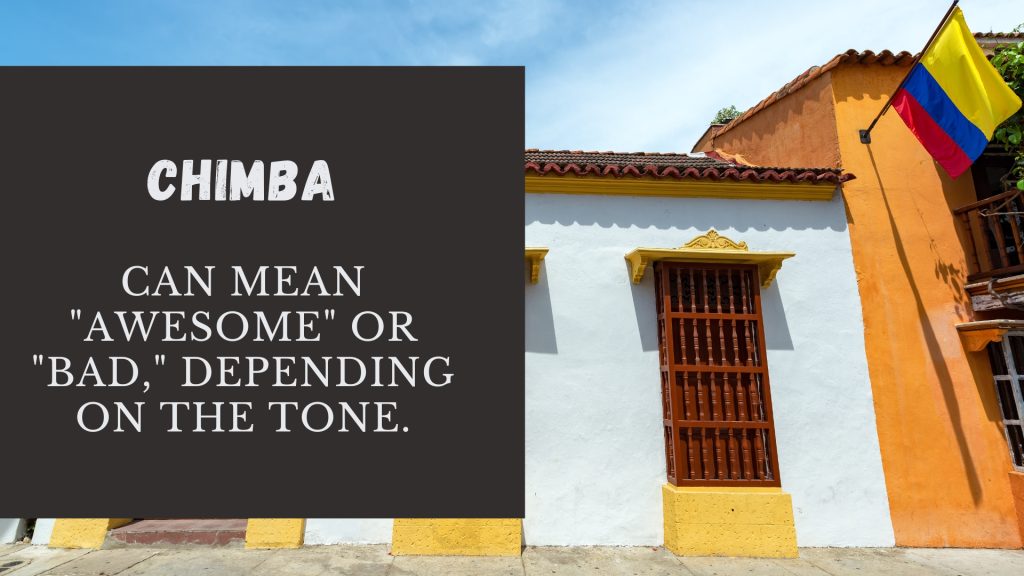
14. Loco (Loca for women)
Used like “dude” or “bro,” even if the person isn’t actually crazy.
📌 Example: “Loco, vamos a la playa este fin de semana.” (Dude, let’s go to the beach this weekend.)
15. Papi (Mami for women)
Used to refer to an attractive person or sometimes affectionately to friends.
📌 Example: “¡Hola, papi! ¿Cómo estás?” (Hey, handsome! How are you?)
You might enjoy our list of Mexican slang terms.
Colombian slang words used to describe food and drinking
Colombian slang makes talking about food and drink more colorful. For example, ‘chuzo’ means a cheap meal, and ‘tinto’ is the word for traditional black coffee. These words show how food brings Colombians together and holds cultural importance.
It’s a laid-back yet meaningful part of life in Colombia.
1. Guaro
Short for Aguardiente, Colombia’s famous sugarcane liquor.
📌 Example: “Esta noche tomamos guaro.” (Tonight, we’re drinking guaro.)
2. Pola
A casual way to say “beer.”
📌 Example: “Vamos por unas polas después del trabajo.” (Let’s grab some beers after work.)

3. Chuzo
A skewer of grilled meat.
📌 Example: “Voy a comer un chuzo en la esquina.” (I’m getting a skewer at the corner.)
4. Chicharrón
Fried pork belly, but also means a difficult situation.
📌 Example: “Este trabajo es un chicharrón.” (This job is a tough one.)
5. Arepa
A staple Colombian food made of cornmeal.
📌 Example: “Desayuné arepa con queso.” (I had an arepa with cheese for breakfast.)
6. Sancocho
A rich soup with meat, plantains, and potatoes.
📌 Example: “Nada mejor que un sancocho un domingo.” (Nothing better than a sancocho on a Sunday.)
7. Lechona
A roasted pig stuffed with rice.
📌 Example: “En la fiesta había lechona deliciosa.” (There was delicious lechona at the party.)
8. Chucha
A slang word for bad smell or stink.
📌 Example: “Uy, qué chucha en este bus.” (Damn, it stinks on this bus.)
9. Guayabo
A hangover.
📌 Example: “Tengo un guayabo horrible.” (I have a terrible hangover.)
10. Cucha
A nickname for old cheese.
📌 Example: “Me encanta la cucha en la arepa.” (I love old cheese on my arepa.)
11. Tombo
A slang word for a cop.
📌 Example: “Cuidado, hay tombos en la esquina.” (Careful, there are cops on the corner.)
12. Jartera
Feeling too full after eating.
📌 Example: “Tengo una jartera increíble.” (I feel so stuffed.)
13. Pandebono
A cheesy bread roll.
📌 Example: “Compré pandebono para el desayuno.” (I bought pandebono for breakfast.)
14. Calentado
A mix of last night’s leftovers for breakfast.
📌 Example: “Nada mejor que un calentado con huevos.” (Nothing better than reheated leftovers with eggs.)
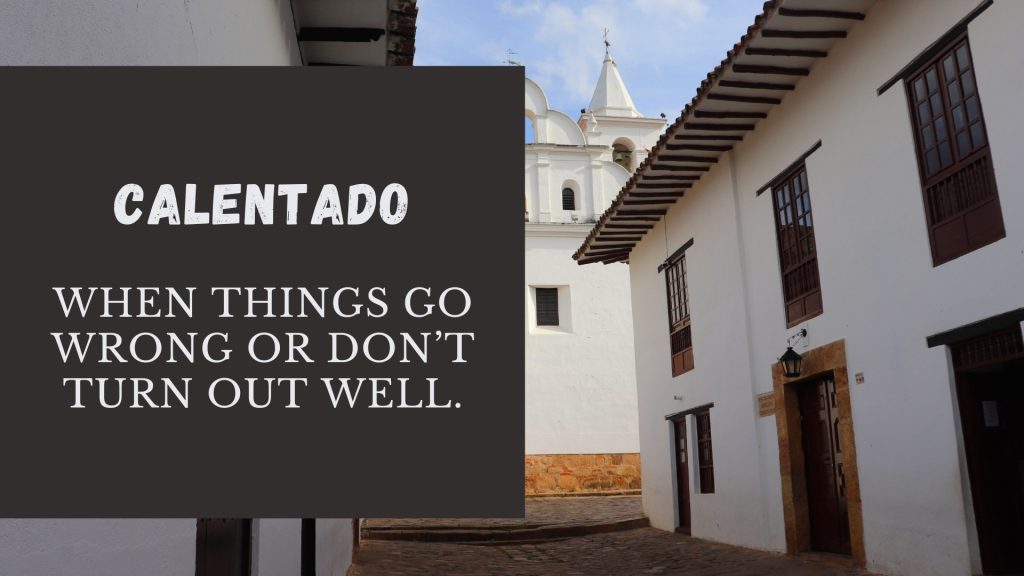
15. Trago
A general term for alcohol.
📌 Example: “Vamos por un trago esta noche.” (Let’s grab a drink tonight.)
Take a look at our selection of Spanish curse words.
Colombian Slang words used to describe things, moods and situations
Colombian slang really brings to life the feelings and situations it talks about. For example, when someone says ‘chimba,’ they’re really excited or they really like something.
On the other hand, ‘paila’ is used when things go wrong or look bad.
Then there’s ‘juicioso,’ which is a way to tell someone to be careful or wise.
1. Chimba
Can mean “awesome” or “bad,” depending on the tone.
📌 Example: “Qué chimba de fiesta.” (What an awesome party.)
2. Bacano
Something cool or fun.
📌 Example: “Ese plan suena bacano.” (That plan sounds cool.)
3. Camello
A tough job or hard work.
📌 Example: “Ese trabajo es un camello.” (That job is really tough.)
4. Rumba
A party or a night out.
📌 Example: “Hoy hay una rumba brutal.” (There’s an amazing party tonight.)
5. Paila
When things go wrong or don’t turn out well.
📌 Example: “Si no llegamos temprano, paila.” (If we don’t arrive early, we’re screwed.)
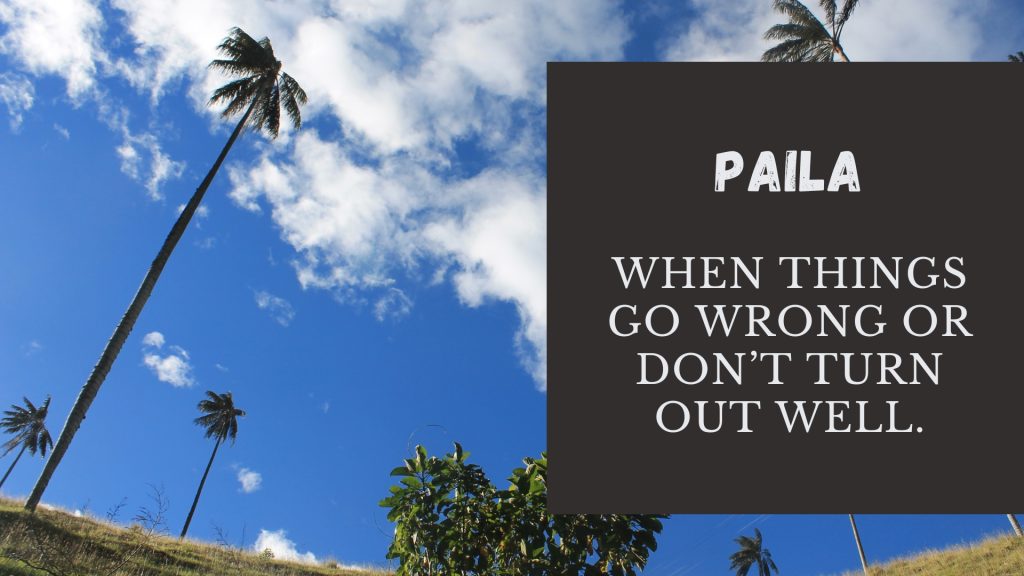
6. Vaina
A vague word that can mean “thing,” “stuff,” or even “problem.”
📌 Example: “Esa vaina está dañada.” (That thing is broken.)
7. Jodido
Something really bad or difficult.
📌 Example: “Estoy jodido con tantas deudas.” (I’m screwed with so much debt.)
8. Mamera
Something boring or tiring.
📌 Example: “Qué mamera hacer fila.” (What a drag to wait in line.)
9. Guayabo
A hangover, but also a sense of regret.
📌 Example: “Tengo un guayabo horrible.” (I have a terrible hangover.)
10. Cansón
Someone or something annoying.
📌 Example: “Ese man es muy cansón.” (That guy is really annoying.)
11. Frito
Being in trouble.
📌 Example: “Si no pago el arriendo, estoy frito.” (If I don’t pay rent, I’m done for.)
12. Embalado
Being short on money or in a tough situation.
📌 Example: “Estoy embalado con las cuentas.” (I’m struggling with the bills.)
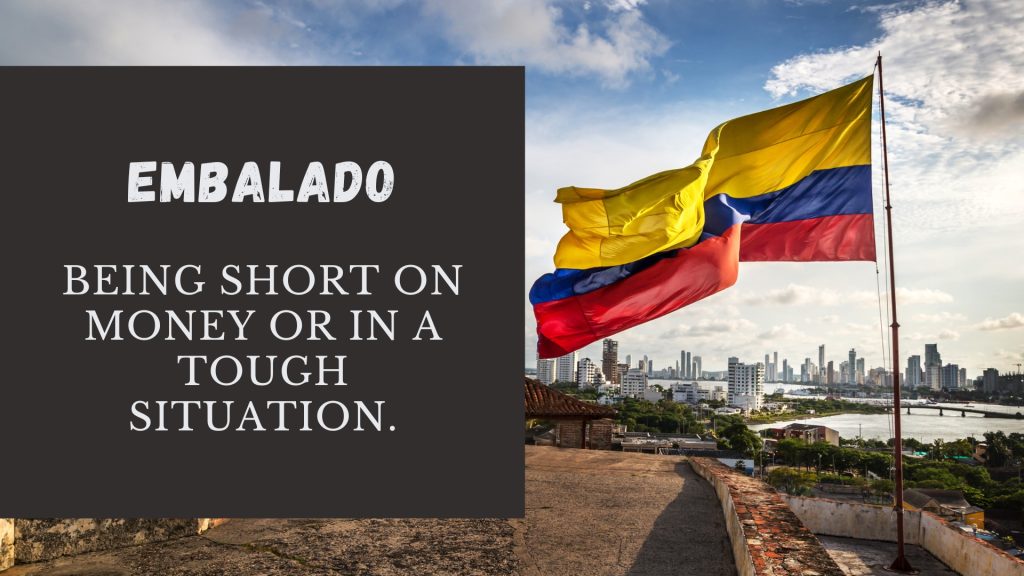
13. Tirado
Someone or something abandoned or in a bad state.
📌 Example: “Ese carro está tirado en la calle.” (That car is abandoned on the street.)
14. Charro
Something lame or embarrassing.
📌 Example: “Ese chiste fue muy charro.” (That joke was really lame.)
15. Al pelo
Something perfect or just right.
📌 Example: “Ese traje te queda al pelo.” (That suit fits you perfectly.)
Conclusion
To put it simply, ‘parcero’ means more than just ‘friend’ in Colombia—it reflects deep connections that people value highly.
This word shows how important loyalty and friendship are in Colombian society.
Using terms like ‘parcero’ makes the language richer and strengthens community ties.
By understanding these words, we get a better view of how vital friendship is to the social structure in Colombia.
Discover new ideas with great reads, Keep exploring Lingua Viva for more.
Carolina is a charming and lively member of Lingua Viva with 11+ years of teaching experience. She loves to teach students appropriate ways to communicate effectively in Spanish without the fear of making mistakes. She holds a professional teaching license and has a graduate degree with emphasis in Foreign Language.







